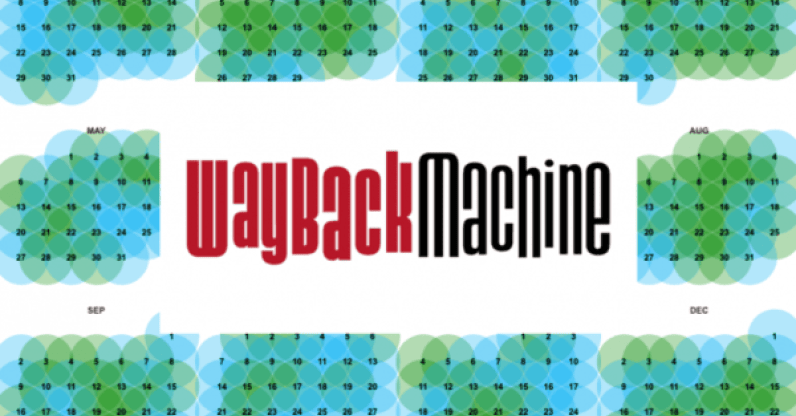
Today's Twitter threads (a thread).
Inside: Opsec and personal security; Australian predictive policing tool for kids; A textbook grift; Labor and large firms; The power of procurements; Guatemala's guilltoines; and more!
Archived at: pluralistic.net/2020/11/23/ops…
#Pluralistic
1/
Inside: Opsec and personal security; Australian predictive policing tool for kids; A textbook grift; Labor and large firms; The power of procurements; Guatemala's guilltoines; and more!
Archived at: pluralistic.net/2020/11/23/ops…
#Pluralistic
1/

Opsec and personal security: Runa Sandvik and Window Snyder on the Attack Surface Lectures.
2/
https://twitter.com/doctorow/status/1330890552569516033
2/

Australian predictive policing tool for kids: Digital phrenology vs racialized kids.
3/
https://twitter.com/doctorow/status/1330898304549339136
3/

A textbook grift: Economics, Final Edition.
4/
https://twitter.com/doctorow/status/1330907385615945728
4/

Labor and large firms: Lessons from Caterpillar and Hollywood.
5/
https://twitter.com/doctorow/status/1330923084405063680
5/

The power of procurements: A streamlined way to regulate IoT.
6/
https://twitter.com/doctorow/status/1330927637959610370
6/

Guatemala's guillotines: Protesters torch the parliament.
7/
https://twitter.com/doctorow/status/1330932317225844736
7/

Someone Comes to Town part 24: This week on my podcast.
8/
https://twitter.com/doctorow/status/1330933618894487553
8/

#10yrsago Machine of Death goes Creative Commons machineofdeath.net/ebook
#10yrsago TSA looks at Adam Savage’s junk, misses his two 12″ razor blades
#5yrsago Blankets: New edition of Craig Thompson’s graphic masterpiece memex.craphound.com/2015/11/23/bla…
9/
#10yrsago TSA looks at Adam Savage’s junk, misses his two 12″ razor blades
#5yrsago Blankets: New edition of Craig Thompson’s graphic masterpiece memex.craphound.com/2015/11/23/bla…
9/

#5yrsago What’s inside a “Hello Barbie” surveillance toy? somersetrecon.com/blog/2015/11/2…
#5yrsago US cops seized more through asset forfeiture in 2014 than US criminals stole through burglary armstrongeconomics.com/international-…
10/
#5yrsago US cops seized more through asset forfeiture in 2014 than US criminals stole through burglary armstrongeconomics.com/international-…
10/

#1yrago Without right to repair, the military can’t fix its own battlefield equipment nytimes.com/2019/11/20/opi…
#1yrago Indiana University Provost: The First Amendment says we can’t fire our notorious bigot professor, so here’s what we’re doing instead web.archive.org/web/2019112121…
11/
#1yrago Indiana University Provost: The First Amendment says we can’t fire our notorious bigot professor, so here’s what we’re doing instead web.archive.org/web/2019112121…
11/

#1yrago Trump pledged that Amazon would be forced to pay its taxes; thanks to his #taxscam, their profits went up and their taxes stayed $0.00 finance.yahoo.com/news/amazon-ta…
12/
12/

#1yrago Civil society groups protest the sale of .ORG to a private equity fund and a collection of Republican billionaires savedotorg.org
13/
13/

Yesterday's threads: An Especially Cursed House; and more!
14/
https://twitter.com/doctorow/status/1330570366352146432
14/

My latest novel is Attack Surface, a sequel to my bestselling Little Brother books. @washingtonpost called it "a political cyberthriller, vigorous, bold and savvy about the limits of revolution and resistance."
Get signed books from @darkdel: darkdel.com/store/p1840/Av…
15/
Get signed books from @darkdel: darkdel.com/store/p1840/Av…
15/
I have a (free) new book out! "How to Destroy Surveillance Capitalism" is an anti-monopolist critique of Big Tech that connects the rise of conspiratorial thinking to the rise of tech monopolies and proposes a way to deal with both:
onezero.medium.com/how-to-destroy…
16/
onezero.medium.com/how-to-destroy…
16/
My ebooks and audiobooks (from @torbooks, @HoZ_Books, @mcsweeneys, and others) are for sale all over the net, but I sell 'em too, and when you buy 'em from me, I earn twice as much and you get books with no DRM and no license "agreements."
craphound.com/shop/
17/
craphound.com/shop/
17/

Upcoming appearances:
* Keynote, Cybersummit 2020, Nov 26 cybera.ca/cyber-summit-2…
* Keynote, Cologne Futures, Nov 27 medienpolitik.eu
* Beaverbrook Lecture: How to Destroy Surveillance Capitalism, Nov 30, mcgill.ca/maxbellschool/…
18/
* Keynote, Cybersummit 2020, Nov 26 cybera.ca/cyber-summit-2…
* Keynote, Cologne Futures, Nov 27 medienpolitik.eu
* Beaverbrook Lecture: How to Destroy Surveillance Capitalism, Nov 30, mcgill.ca/maxbellschool/…
18/

Recent appearances:
* Talkingheadz Podcast:
talkingpointz.com/talkingheadz-w…
* Can Web 3 Help Democracy?
* Fully Charged: The future of energy over the next 300 years
fullycharged.show/podcasts/podca…
19/
* Talkingheadz Podcast:
talkingpointz.com/talkingheadz-w…
* Can Web 3 Help Democracy?
* Fully Charged: The future of energy over the next 300 years
fullycharged.show/podcasts/podca…
19/

My first picture book is out! It's called Poesy the Monster Slayer and it's an epic tale of bedtime-refusal, toy-hacking and monster-hunting, illustrated by Matt Rockefeller. It's the monster book I dreamt of reading to my own daughter.
pluralistic.net/2020/07/14/poe…
20/
pluralistic.net/2020/07/14/poe…
20/

You can also follow these posts as a daily blog at pluralistic.net: no ads, trackers, or data-collection!
Here's today's edition: pluralistic.net/2020/11/23/ops…
21/
Here's today's edition: pluralistic.net/2020/11/23/ops…
21/
If you prefer a newsletter, subscribe to the plura-list, which is also ad- and tracker-free, and is utterly unadorned save a single daily emoji. Today's is "🧳". Suggestions solicited for future emojis!
Subscribe here: pluralistic.net/plura-list
22/
Subscribe here: pluralistic.net/plura-list
22/
Are you trying to wean yourself off Big Tech? Follow these threads on the #fediverse at @pluralistic@mamot.fr.
Here's today's edition: mamot.fr/@pluralistic/1…
23/
Here's today's edition: mamot.fr/@pluralistic/1…
23/
Today's top sources: Noah Shifrin, Fipi Lele, Slashdot (slashdot.org), Naked Capitalism (nakedcapitalism.com).
eof/
eof/

• • •
Missing some Tweet in this thread? You can try to
force a refresh






